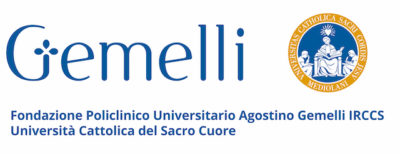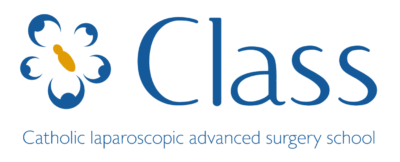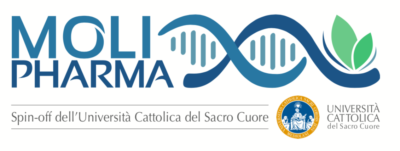Con il patrocinio di:
Webinar FAD





CDK 4/6 Inhibitors - evolution of the paradigm
21 giugno 2021 Webinar sincrono accreditato
Fad asincrona accreditata dal 28 giugno al 28 dicembre 2021
Direttore della scuola Class
Responsabile Scientifico
9.00 – Introduzione al corso. Prof. G. Scambia – Prof. Masetti – Dr.ssa Alessandra Fabi
Moderatori: Dr.ssa Dr.ssa Teresa Gamucci – Prof. Emilio Bria
09.30 – Stato dell’arte nel trattamento delle neoplasie mammarie metastatiche HR+/HER2-. Dr.ssa Agnese Fabbri
09.50 – Abemaciclib: i dati nelle pazienti endocrino-sensibili e nelle endocrino-resistenti. Prof. Daniele Generali
10.10 – Qualità di vita e inibitori delle CDK4/6. Dr.ssa Laura Pizzuti
10.30 – Discussione: Dr. Andrea Botticelli, Dr.ssa Giuliana D’Auria
10.50- Coffee break
Moderatori: Dr.ssa Patrizia Vici – Dr. Antonio Astone
11.10 – Differenze farmacologiche tra inibitori delle CDK4/6: possibile spiegazione delle differenze cliniche. Prof. Paolo Vigneri
11.30 – Trattamento adiuvante delle pazienti con neoplasie HR+/HER2-: le novità che potranno cambiare la pratica clinica. Dr.ssa Alessandra Fabi
11.50 – Prospettive future. Dr.ssa Ida Paris
12.10 – Discussione: Dr. Mauro Minelli, Dr Armando Orlandi
12.30 – Conclusione del corso. Dr.ssa Paris I, Dr.ssa Fabi A.
CDK4 and CDK6 are cyclin-dependent kinases that control the transition between the G1 and S phases of the cell cycle. CDK4/6 activity is typically deregulated and overactive in cancer cells. There can be amplification or overexpression of the genes encoding cyclins or of the genes encoding the CDKs themselves. Additionally, loss of endogenous INK4 inhibitors, by gene deletion, mutation, or promoter hypermethylation, can also lead to overactivity of CDK4 and CDK6. A major target of CDK4 and CDK6 during cell-cycle progression is the retinoblastoma protein (Rb). When Rb is phosphorylated, its growth-suppressive properties are inactivated. Selective CDK4/6 inhibitors “turn off” these kinases and dephosphorylate Rb, resulting in a block of cell-cycle progression in mid-G1. This causes cell-cycle arrest and prevents the proliferation of cancer cells. Although the initial response to a selective CDK4/6 inhibitor is typically cell-cycle arrest, in some cases arrested cells enter a state of senescence. Understanding the determinants of whether a cell undergoes reversible G1 arrest or enters a senescent state is an important research area. Cancer cells entering senescence may undergo gradual regression over time; it is in such cancers that CDK4/6 inhibitors may produce the greatest clinical benefit. To date, estrogen receptor–positive breast cancer is the malignancy for which this class of drugs has proven most effective and for which we have the most mature data from randomized trials comparing these drugs with endocrine therapy alone. Besides abemaciclib demonstrated an important activity in endocrine-resistant patients thus determining a survival prolongation delaying the time to chemotherapy. These results had never been seen in these setting of patients. This meeting would like to review the mechanisms of action and efficacy of these drugs in order to evidence the best choice in clinical management of estrogen receptor–positive breast cancer with special point of view in their future development in every setting.
ASTONE Antonio Fondazione Policlinico Universitario A. Gemelli IRCCS, Roma
BOTTICELLI Andrea Ospedale Sant’Andrea Roma
BRIA Emilio Fondazione Policlinico Universitario A. Gemelli IRCCS, Roma
D’AURIA GIULIANA Ospedale Sandro Pertini, Roma
FABBRI Agnese Ospedale Belcolle, Viterbo
FABI Alessandra Fondazione Policlinico Universitario A. Gemelli IRCCS, Roma
GAMUCCI Teresa Ospedale Sandro Pertini, Roma
GENERALI Daniele ASST di Cremona, Università di Trieste
MASETTI Riccardo Università Cattolica del Sacro Cuore, Fondazione Policlinico Universitario Agostino Gemelli IRCCS, Roma
MINELLI Mauro Azienda Ospedaliera San Giovanni Addolorata, Roma
ORLANDI Armando Fondazione Policlinico Universitario A. Gemelli IRCCS, Roma
PARIS Ida Fondazione Policlinico Universitario A. Gemelli IRCCS, Roma
PIZZUTI Laura Istituto Regina Elena, Roma
SCAMBIA Giovanni Università Cattolica del Sacro Cuore, Fondazione Policlinico Universitario Agostino Gemelli IRCCS, Roma
VICI patrizia Istituto Regina Elena, Roma
Vigneri Paolo Policlinico “G. Rodolico – S. Marco, Catania
Sono stati assegnati nr 2 crediti ECM per le seguenti categorie: Medico Chirurgo (specializzazioni: anatomopatologi, ginecologi, oncologi, chirurgia generale, radioterapisti) e Infermieri.
PROVIDER
Università Cattolica del Sacro Cuore
Formazione Permanente ECM, convegni e manifestazioni
Accreditato dalla Commissione Nazionale ECM n° 2463
E-mail: Daniele.Petricca@unicatt.it
Tel +39 06 3015 4074
fax +39 06 3051 732
La registrazione può essere effettuata collegandosi al sito www.obegyn.com
Il link per accedere alla piattaforma per la fruizione del corso verrà fornito, il giorno prima della diretta, all’indirizzo e-mail indicato in fase di registrazione.
con il contributo non condizionante di

 Italiano
Italiano English
English
